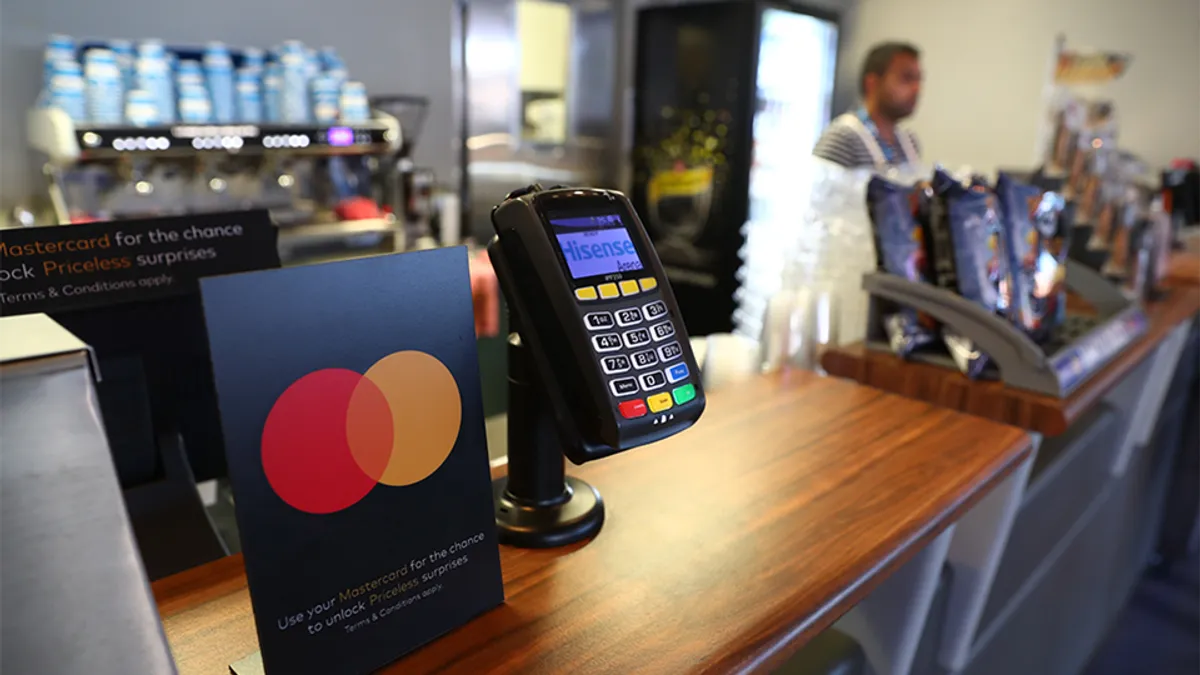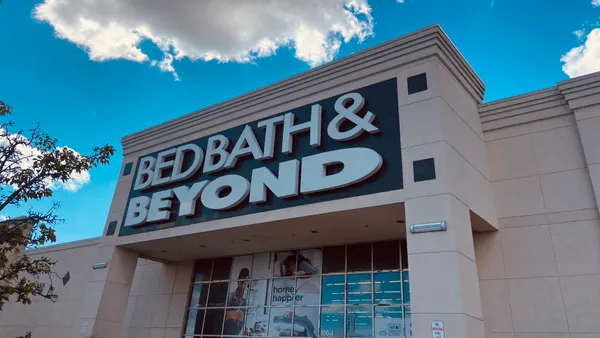Dive Brief:
- Following other fintech companies and retailers experimenting with biometrics, Mastercard announced Tuesday that it is introducing a biometric checkout program. The card issuer is working with NEC, Aurus, PaybyFace, PopID and Fujitsu Limited to deploy the tool internationally, maintain its safety standards and protect the data collected.
- Consumers will be able to review their bill and smile into a camera or wave their hand over a reader to pay. Mastercard is first piloting the program in Brazil and plans to test out the feature in the Middle East and Asia, per the announcement.
- The program outlines standards for financial institutions and tech companies to follow to secure the data and keep customer information private. The participants in the program can offer consumers biometric checkout services either online or in-store through the merchant or an identity provider app.
Dive Insight:
Mastercard is pitching this new program as a more hygienic, secure payment method for merchants. The service also allows for loyalty program integrations and personalized product recommendations for consumers, per the company announcement.
“The way we pay needs to keep pace with the way we live, work and do business, offering choice to consumers with the highest levels of security,” Ajay Bhalla, president of cyber & intelligence at Mastercard, said in a statement. “Our goal with this new program is to make shopping a great experience for consumers and merchants alike, providing the best of both security and convenience.”
PopID's involvement in the program comes as the company is raising funds to expand its reach. The Pasadena, California-based startup aims to raise $50 million to grow its business and already raised $25 million.
Meanwhile, as Mastercard and other payments technology companies develop biometric payment tools, some retailers have already experimented with them in stores. In 2020, Amazon debuted Amazon One, a biometric authentication feature that lets users pay for their purchases using the palm of their hand. The e-commerce giant uses its vision technology to match shoppers with their user accounts. Last month, its sister retailer Whole Foods rolled out Amazon One into its stores in Austin, Texas.
But as financial technology companies and retailers integrate biometric technology into their operations, they must also contend with local consumer protection regulations. According to Reuters, California, New York City, Washington, Illinois and Texas each have their own biometric laws.














